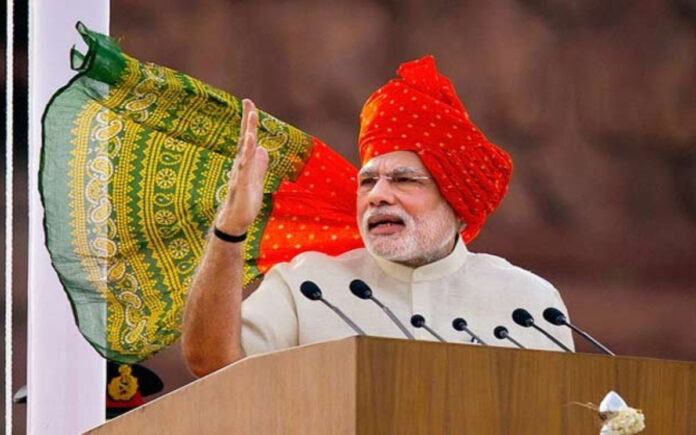New Delhi: Tara Chand Baloch, President of the Baloch American Congress (BAC) and a former cabinet minister from Balochistan, has made a heartfelt appeal to Indian Prime Minister Narendra Modi, urging India to provide ethical, political, and diplomatic support to the Baloch national movement resisting what he describes as Pakistan’s oppressive rule.
In two official letters addressed to the Prime Minister’s Office in New Delhi, Chand conveyed sincere appreciation for India’s past solidarity with the Baloch cause. He particularly emphasized Prime Minister Modi’s mention of Balochistan during his Independence Day speech at the Red Fort—an acknowledgment that, according to Chand, resonated powerfully with the global Baloch diaspora as a crucial expression of moral support.
Chand underscored that the human rights violations in Balochistan are part of a deliberate and sustained campaign aimed at suppressing the long-standing national liberation movement of the Baloch people. He also warned about the increasing influence of China in the region, describing it as a form of neocolonial encroachment that threatens regional sovereignty.
Addressing the issue of international awareness, Chand lamented, “Outside of the Indian media, there is scant acknowledgement of the atrocities committed by the Pakistani state in Occupied Balochistan.” This lack of global recognition, he argued, allows the Pakistani state to continue its harsh repression unchecked.
Calling for decisive Indian involvement, Chand urged that, “Without substantial moral and political backing from the state level, Pakistan and its allies could extinguish the national resistance of the Baloch people, ushering in a new, more ominous phase of colonialism in Balochistan.”
Emphasizing Balochistan’s geopolitical significance, Chand highlighted its abundant natural resources and strategic coastline, framing the region as critical not only for local stability but for broader South Asian peace. He stated, “A liberated and cooperative Balochistan would benefit peace-loving individuals in India,” portraying it as a key asset for 21st-century regional geopolitics.
Reflecting on Modi’s Independence Day address, Chand remarked, “Your reference to Balochistan in your Red Fort address was embraced by Baloch people around the world as an indication of moral support for a nation that has been occupied, subjugated, and terrorised by Pakistan.”
Also Read | India to Review IndiGo-Turkish Airlines Partnership Amid Security Concerns
The letter also revisited the historical context of Balochistan’s incorporation into Pakistan in 1948, which Chand described as the start of “a cruel occupation.” He accused Pakistan’s military leadership, based in Rawalpindi, of perpetrating acts comparable to genocide against the Baloch population.
“Governed by a jihadist army, this poorly conceived country is accountable for the disappearances, torture, deaths, and displacement of thousands of my countrymen,” the letter asserts.
In addition to addressing the Baloch issue, Chand praised Prime Minister Modi’s firm stance regarding the Indus Waters Treaty. He welcomed the decision to reconsider the agreement as a strategic diplomatic move to signal Pakistan that “blood and water cannot coexist.”
Also Read | Monsoon Arrives Ahead of Schedule, Earliest Since 2009
“I commend your astute decision to place the Indus Waters Treaty on hold and to clarify to the jihadist generals of Pakistan that blood and water cannot coexist,” Chand wrote.
The Baloch American Congress, a legally registered political organization in the United States, advocates for the self-determination rights of the Baloch people and safeguards the interests of the Baloch diaspora globally.
Chand concluded his appeal with a message of hope and confidence in India’s role: “The Baloch people hold high hopes for India’s leadership and are looking towards the Indian government with optimism.”



